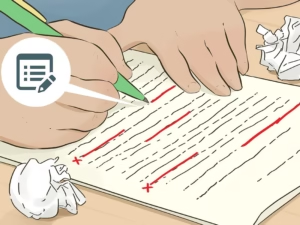 If your case goes to litigation, you must answer interrogatories within the first few months after the lawsuit is filed (others can be served later in the case). Interrogatories are written questions from opposing counsel — part of the discovery process — designed to give them basic information about you and your case. They must be answered in writing and under oath (notarized) and returned to opposing counsel within 30 days. While different lawyers have different methods, it is common for plaintiffs’ lawyers to mail their clients the defendant’s interrogatories with limited instructions on how to answer them. The plaintiffs often receive vague instructions to “answer as best you can” and return them to the lawyer. Here are some basic instructions to save you time and anxiety when answering interrogatories.
If your case goes to litigation, you must answer interrogatories within the first few months after the lawsuit is filed (others can be served later in the case). Interrogatories are written questions from opposing counsel — part of the discovery process — designed to give them basic information about you and your case. They must be answered in writing and under oath (notarized) and returned to opposing counsel within 30 days. While different lawyers have different methods, it is common for plaintiffs’ lawyers to mail their clients the defendant’s interrogatories with limited instructions on how to answer them. The plaintiffs often receive vague instructions to “answer as best you can” and return them to the lawyer. Here are some basic instructions to save you time and anxiety when answering interrogatories.
The Four Basic Types of Interrogatories in a Personal Injury Case
Interrogatories can generally be categorized into four types: List questions, Yes/No, and if yes questions, Narrative questions, and Lawyer questions. How you respond to every kind of question varies.
1) List Questions
These questions require you to provide answers in a list format. Examples include listing previous employment, residences, medical treatments related to the injury, and witnesses knowledgeable about the lawsuit. It’s essential to answer these questions as completely as possible to avoid limiting potential evidence or witnesses later on. Providing a range (e.g., March 2010 – February 2011) is sufficient for dates. If unable to recall all details, state your efforts and provide what information you can.
 2) Yes/No and if Yes Questions
2) Yes/No and if Yes Questions
Initially, these questions require a simple yes or no answer. If you answer yes, you will then provide further details as requested. Examples might include questions about wearing corrective lenses, prior convictions, or substance use before the incident. If the answer is no, simply state “no.” Provide the additional information only if you answered yes.
3) Narrative Questions
Narrative questions ask you to describe the incident in your own words. You might be asked to describe the incident, any negligence by any party, or the injuries sustained. When answering, be brief yet complete, avoiding speculation or unnecessary details. The goal is to provide a basic understanding, as more information will be explored further in your deposition.
4) “Lawyer” Questions
Your attorney typically answers questions regarding experts, evidence, settlements, and witnesses. Leave these questions blank.
What Happens After You Return Your Draft Interrogatory Answers to Your Lawyer?
Once you’ve drafted your answers, please promptly return them to your attorney. They will need time to review and finalize the document before the 30-day deadline. Keep a copy of your draft answers to compare with the final version. If you notice discrepancies or errors, correct them before signing under oath. Should you later realize an omission or mistake in your answers, inform your attorney immediately so they can issue a supplemental answer. It’s imperative to be truthful in your interrogatory answers, as dishonesty can lead to sanctions or even dismissal of your lawsuit.
Interrogatory FAQs
What are interrogatories?
Interrogatories are written questions sent by one party in a lawsuit to the other, designed to gather information relevant to the case. They are a critical part of the discovery process and must be answered truthfully and under oath.
How long do I have to answer interrogatories?
Typically, you have 30 days from receiving the interrogatories to provide your answers to the opposing counsel.
Can I refuse to answer an interrogatory question?
While you may feel uncomfortable answering specific questions, you should not refuse to answer without consulting your attorney. Your lawyer can advise you on objections or ways to answer that protect your interests. The opposing side is allowed to ask anything that may lead to admissible evidence, so this allows broad questioning.
What happens if I make a mistake in my interrogatory answers?
If you discover an error or omission in your answers, notify your attorney immediately. They can submit a supplemental answer to correct the mistake. Promptly addressing errors is better than allowing the opposing counsel to use them against you.
Why is it essential to answer interrogatories accurately?
Accurate answers are vital for establishing credibility and building a solid case. Misleading or false answers can undermine your case, lead to sanctions, or result in the dismissal of your lawsuit.
What should I do if I don’t understand a question?
If you’re unsure about what a question is asking, consult with your attorney before answering. They can provide clarification and ensure your response is accurate and complete.
Can my attorney answer some questions for me?
Yes, your attorney typically answers questions related to legal strategy, evidence, and expert witnesses. It would be best if you focused on providing personal knowledge and facts.
How detailed should my answers be?
Your answers should be thorough. Provide all requested information but avoid unnecessary details irrelevant to the question.
Can interrogatory answers be used in court?
Your responses can be used as evidence in court proceedings since they are given under oath.









